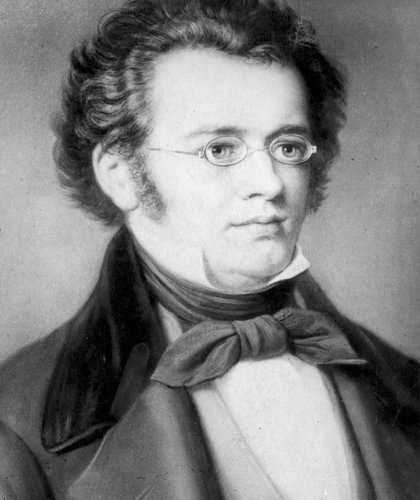
Franz Schubert
Franz Schubert (1797-1828) was born in Vienna. His father, who played music himself, was instrumental in fostering his son's exceptional musical talent, which began to show at an early age. In the beginning it was him who gave music lessons to his son, then he took him to Michael Holzer, the local church organist and choirmaster in Lichtental. Holzer taught him harmony, to play the organ, sing and play the violin. At the age of 11 he was admitted to the court's boys' choir and to the Stadtkonvikt (Imperial seminary), where he learnt composition from Antonio Salieri. He was 13 years of age when he composed his first piece. In 1813 he left the Stadtkonvikt and enrolled in the Normalhauptschule to train as a teacher, following the example of his father. After graduating, he started to teach and also composed music: at the age of 17 he himself conducted his Mass in F major at the 100th anniversary concert of the Lichtental Parish Church. At the invitation of Count János (Johann Carl) Esterházy he spent the summer of 1818 in Hungary, in Zseliz on the river Garam, where he gave lessons to the two daughters of the Count. He met some aristocrats from Vienna, some of his songs and chamber music pieces were played in their salons (the piano part was always played by himself), however, never did he hear the majority of his orchestral pieces performed live. He only had one concert dedicated to his work, in 1828, the year of his death. He was extremely prolific and left a rich legacy to future generations. He composed more than 600 songs, symphonies, operas, piano pieces, liturgical music and a large number of chamber music pieces. He died prematurely in 1828, at the age of 31. He was buried near Beethoven, as he requested in his will.